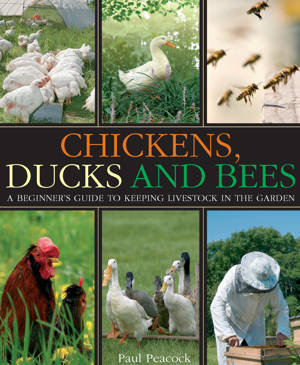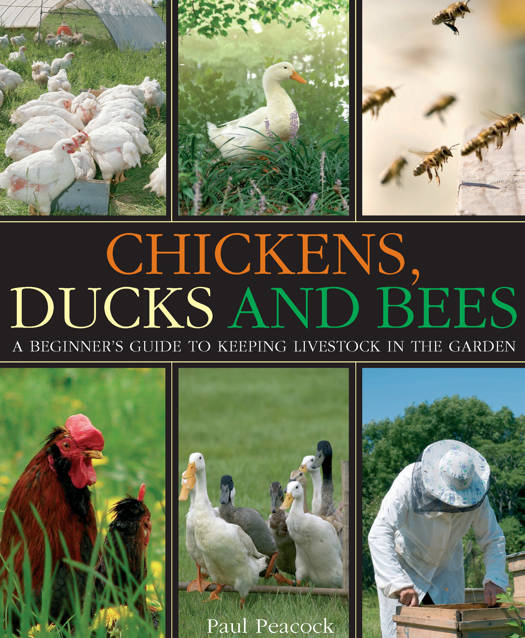
En raison d'une grêve chez bpost, votre commande pourrait être retardée. Vous avez besoin d’un livre rapidement ? Nos magasins vous accueillent à bras ouverts !
- Retrait gratuit dans votre magasin Club
- 7.000.000 titres dans notre catalogue
- Payer en toute sécurité
- Toujours un magasin près de chez vous
En raison de la grêve chez bpost, votre commande pourrait être retardée. Vous avez besoin d’un livre rapidement ? Nos magasins vous accueillent à bras ouverts !
- Retrait gratuit dans votre magasin Club
- 7.000.0000 titres dans notre catalogue
- Payer en toute sécurité
- Toujours un magasin près de chez vous
Chickens, Ducks and Bees EBOOK
A beginner's guide to keeping livestock in the garden
Paul Peacock
Ebook | Anglais
3,99 €
+ 3 points
Format
Description
Growing your own vegetables often leads gardeners to want to go one step further and keep some livestock. Chickens, ducks and bees are the most likely candidates for the first time livestock owner - especially if you live in a town or have only a small amount of land. They can all be kept happily together. Keeping these animals is a fun and absorbing hobby and is a great antidote to stress. There is nothing more rewarding than the collection of your own fresh eggs and honey. The book is full of sound, practical advice and looks at exactly what you need to get started: the equipment, housing, space and feed. Taking the breeds best suited for the smaller garden, town garden, or allotment, the responsible care and management of these animals is thoroughly covered in a friendly, approachable style with their welfare always in mind. Chickens: from breed selection to housing, feeding, care, and health issues this book provides simple, no nonsense information about how hens live, their needs and lifestyle and how to keep happy, healthy and productive hens. Ducks: here is all you need to know to introduce these entertaining animals to the garden - their walking requirements, their feed, and the surprisingly small amount of water they need. Duck eggs are great for baking and this book shows you how to keep your ducks happy and laying. Bees: there are many more people now interested in keeping bees. Paul Peacock shows you how to get started, where to get help, what equipment you need, and how to handle bees and harvest their honey. It emphasises gentle bees, and covers the control of varroa and other potential bee diseases.
Spécifications
Parties prenantes
- Auteur(s) :
- Editeur:
Contenu
- Langue:
- Anglais
Caractéristiques
- EAN:
- 9781848035720
- Date de parution :
- 24-02-11
- Format:
- Ebook
- Protection digitale:
- Adobe DRM
- Format numérique:
- ePub

Les avis
Nous publions uniquement les avis qui respectent les conditions requises. Consultez nos conditions pour les avis.






